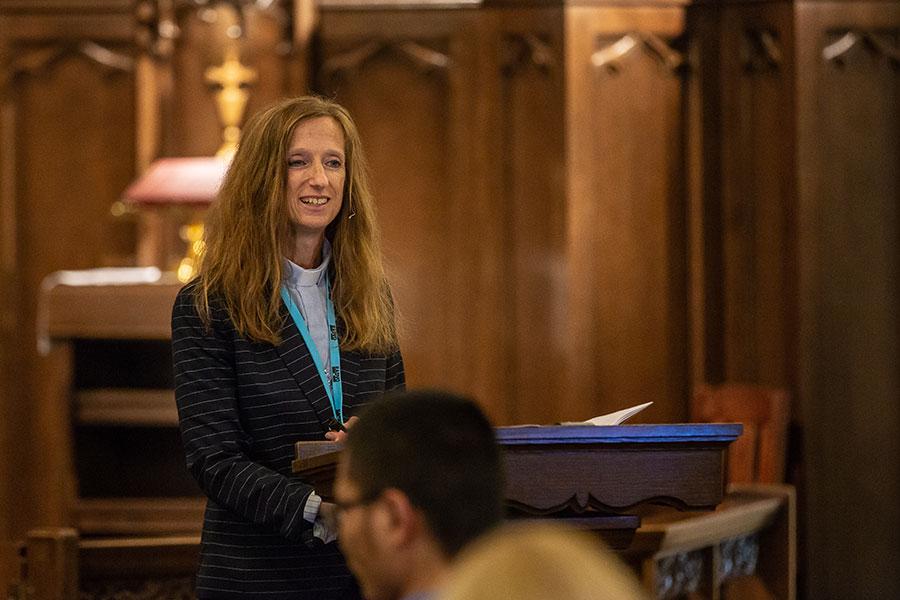Outside my office window there is a stunning tree. Burnt-red, tall and thick, deep blue sky behind it, and on either side trees still bright green. A plane, a silver arrow, flies across the face of the half-moon clearly visible in the sky, and it is all so beautiful I can almost ignore Robarts Library hulking behind.
Thanksgiving! It is a good time of year for it: when the trees burst into flame, and the sun is still warm on your face. I am glad to have a reason to stop and give thanks, an occasion for it, to celebrate the golden light of the fall, and this country at peace, and turkey and friends and faith and learning and life. For so many gifts, my heart is glad to give thanks.
So, I was startled to see that a local school is calling this holiday weekend not “Thanksgiving,” but “Fall Festival.” I think (hope) that this is idiosyncratic and not a new trend in Canadian correctness … because we need Thanksgiving. We need to be able to give thanks.
I see the problem: “thank you” implies a giver. Thanksgiving puts God, the great Giver, at the centre of our common life. That is the logic of it; that is what we meant when we first celebrated “Thanksgiving” in this country. So, yes, it will be problematic for a country that does not officially recognize God.
But consider what is lost, if we lose “Thanksgiving.” For that “ah!” that I feel when I see the burnt red tree,
Skies of couple-colour as a brinded cow,
Rose-moles all in stipple upon trout that swim,
Fresh-firecoal chestnut-falls,[1]
that “ah!” that we feel in the fall is just one moment of the “ah!” that runs under all things.
Why this flaming fall? Its beauty in dying is gratuitous; it is pure gift. And in this it is a pointer for us, to another beauty and another gift.
In my church at St. Matthew’s we celebrate “thanksgiving” not just once a year, but every week. Every Sunday we gather, our little congregation, around the altar for the Eucharist. Eucharist: the word means “I give thanks.” Εὐχαριστῶ (eucharistō), “I give thanks,” Paul says again and again in his letters: I give thanks for you, my brothers and sisters; I give thanks for the love of God in Jesus our Lord; I give thanks for his cross that has bought you and washed you and brought you here – to his family, to his table – out of sin, into song.
We read in my church on Thanksgiving Sunday the story of the ten lepers (Luke 17:11–19). Ten lepers with their ravaged faces ringing their bells, crying “Away, away! Unclean! Keep away!” Far off they stand and call to Jesus, “Jesus, Master, have mercy on us.” And as they go, they are healed. Here it is, the grace that has bought us, and washed us, and brought us home – even (and especially) those of us who think we are the most unclean. Here is the “ah!” that runs under all things. He is the “ah!” that runs under all things.
That fiery tree outside my window is only a shadow of the beauty that is there for us – for this whole sin-struck world – in the blazing grace of God.
The lepers are healed whether they say “thanks” or not. The tree flames for everyone. But to say “thank you” is to see the “ah!”
Because the Holy Ghost over the bent
World broods with warm breast and with ah! bright wings.[2]
There is a song that thrums in the world’s very bones. To say εὐχαριστῶ, “I thank you, Jesus my Lord,” is to join the song.





